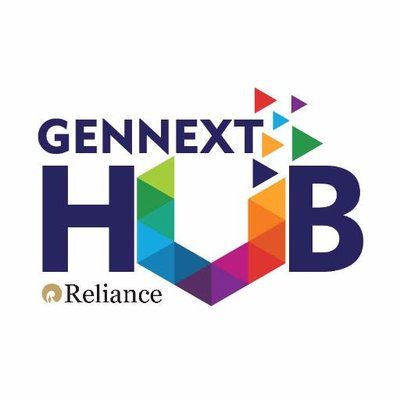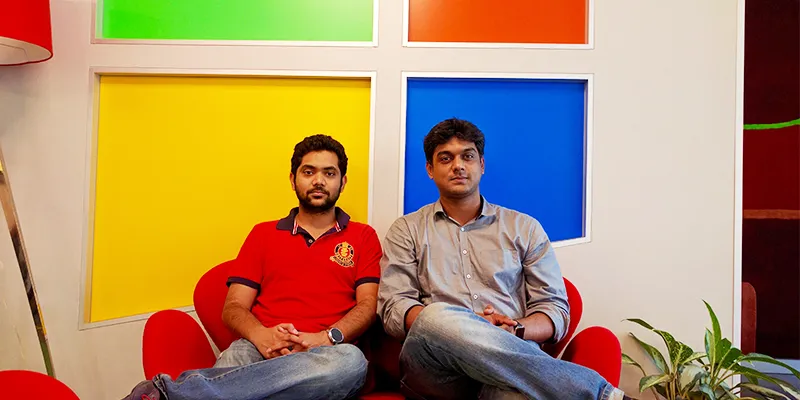
GenNext Hub
View Brand PublisherHow GenNext Hub is enabling startups Dattus and Codemojo to make inroads locally and globally
“Dattus is looking to expand in the Indian market and we feel GenNext Hub provides the best platform to help us achieve that,”
says Lokesh Gupta, CTO and Co-founder of Dattus. The startup is one of nine that are part of the GenNext Hub summer 2016 batch. GenNext Hub is one of India’s top Scalerator, which helps startups scale up to a minimum viable company by providing them with the critical resources they need.
Dattus' Industrial IoT platform helps industries make their operations smart seamlessly. Dattus monitors machines for performance, efficiency and reliability in real-time, and transforms industrial equipment (old and new) to smart machines. The unique part of Dattus' platform is that it enables a plug-and-play user experience without programming or extensive setups. In less than two hours, Dattus activates a turnkey platform that enables everything, from component level data collection from machines, to analytics, and integration with business processes. The turnkey platform helps manufacturing companies turn their cost-centres into revenue drivers.
Dattus was born out of an entrepreneurship program at Purdue University, where Lokesh and Anurag Garg, Co-founder and CEO of Dattus, were pursuing their PhD. Raising initial non-dilutive capital through business plan competitions in 2013 and 2014 enabled the startup to work on the initial proof-of-concept field installations. Since then, Dattus has raised ~$2M in competition grants, tax credits, and from angel investors and VCs across the US.

The first two years were challenging for the duo for several reasons, but primarily because the founders, like many entrepreneurs, didn’t have a strong business background. Additionally, Anurag and Lokesh juggled graduate research positions while managing the new venture - both roles which required more than full-time attention. The co-founders admit they made their fair share of bad decisions and compromises but survived, thanks to a very strong team of mentors and advisors. “In 2014, we decided to build the core product engineering team in Pune while the company was headquartered in the US - this led to a new set of challenges related to ensuring seamless team-building and communication across two different time zones, cultures, and market perceptions,” says Lokesh.
Being a part of GenNext Hub, has helped them address many of these challenges and make in-roads into the Indian market.
“GenNext Hub has provided us with direct access to seasoned executives from Reliance and industry experts. Many of our business hypotheses were validated during interactions at GenNext Hub and our business model has improved significantly. We are incorporating some of the ideas and learnings that we gathered in the last four months into our business,” says Anurag. “Additionally, GenNext Hub has provided us with an opportunity to implement proof-of-concept at Reliance Industries. This will surely help us get significant customer traction in India and the US.”
Talking about a key learning, Anurag says, “In the US, B2B customers take business decisions with broad discussions and negotiations across multiple teams. In India, this process is more top down. GenNext Hub helped us understand this key cultural difference between B2B customers in India and the US.”
The duo say that the GenNext Hub experience will enable Dattus to develop a unique value proposition and business model for Indian clients, and will help them achieve their larger goal of becoming a “key player in the industrial IoT space providing cloud-connected solutions.”
“Being part of GenNext Hub was a tipping point for us. We bagged Reliance as our client, and everything that followed from then on has been super exciting!”
says Vijaykrishna Ramanathan, CEO, CodeMojo. Also, part of GenNext’s summer 2016 batch, the startup’s biggest USP is “enabling customer engagement in just 10 lines & 10 mins of code.”
The one-year-old startup offers closed loop, white-labelled, fully-managed modular components for end-to-end customer engagement in the omni-channel space. This includes, but is not limited to, referral, full-fledged enterprise level loyalty, user behaviour analysis and gamification, coupons and promotions, and a rewards wallet. All of these can be plugged in with any online website, application or physical and cloud POS to provide a complete customer engagement solution.

Narrating their startup story, Shoaib Mohammed, CTO, says, “Bootstrapping in the SMB space was a big challenge when we first started, right from finding the right person for the demo, to training and payment collection.”
GenNext Hub is supporting CodeMojo by connecting them to veterans across different industry verticals, and providing valuable inputs and support that is enabling them to scale. Vijaykrishna says, “GenNext Hub has brought together enterprising entrepreneurs under a single roof. Today, this large distributed team is just a phone call away. We have interacted with industry experts in person, which otherwise wasn’t remotely possible.” Adds,
“Through GenNext Hub we gained an in-depth understanding of how Reliance, in its initial days, grew with calculated risk under a bootstrapped environment. We have incorporated few key learnings from studying Reliance Jio Infocomm Limited. These are essential learnings that you hardly come across in an ecosystem driven by investments and large valuations.” CodeMojo has improved its sales process and as a result are now beginning to see better traction.
Facilitated by GenNext Hub, Codemojo has recently raised seed investment from CIO Angel Network led by Sanjay Mehta and Manoj Chandiramani.
Vijaykrishna believes that for startups to succeed, “especially when you are on a path to achieve rapid growth, discipline and transparency are prime factors.” Talking about how they got shortlisted for inclusion in the GenNext Hub, the CEO says, “Though it had just been a couple of months since we pivoted from offline to omni-channel, we spent a good amount of time mapping our offering from an enterprise level rollout perspective. We were transparent about the company, the numbers, and where we wanted to go.”
Armed with the GenNext Hub experience, lessons on scaling up, and some great connections, CodeMojo is very positive about the road ahead. Shoaib says the opportunity is immense, and that the team’s plan is to “establish a good user base in India followed by a global rollout. The biggest USP for a product like CodeMojo is that we can virtually scale up to any business around the world.”
Having survived the downs and celebrated the ups in the startup journey, the co-founders say, “You may not realise it but every step of your entrepreneurial journey is filled with new learning and experiences. You get to meet awesome people, and some not so awesome ones, but ultimately it definitely is worth putting all your efforts into.”
As part of its four-month long immersive programme, GenNext Hub gives chosen startups access to funding, business mentors, technical and design experts, plug-and-play office space and other resources and thereby enables startups achieve scale.







